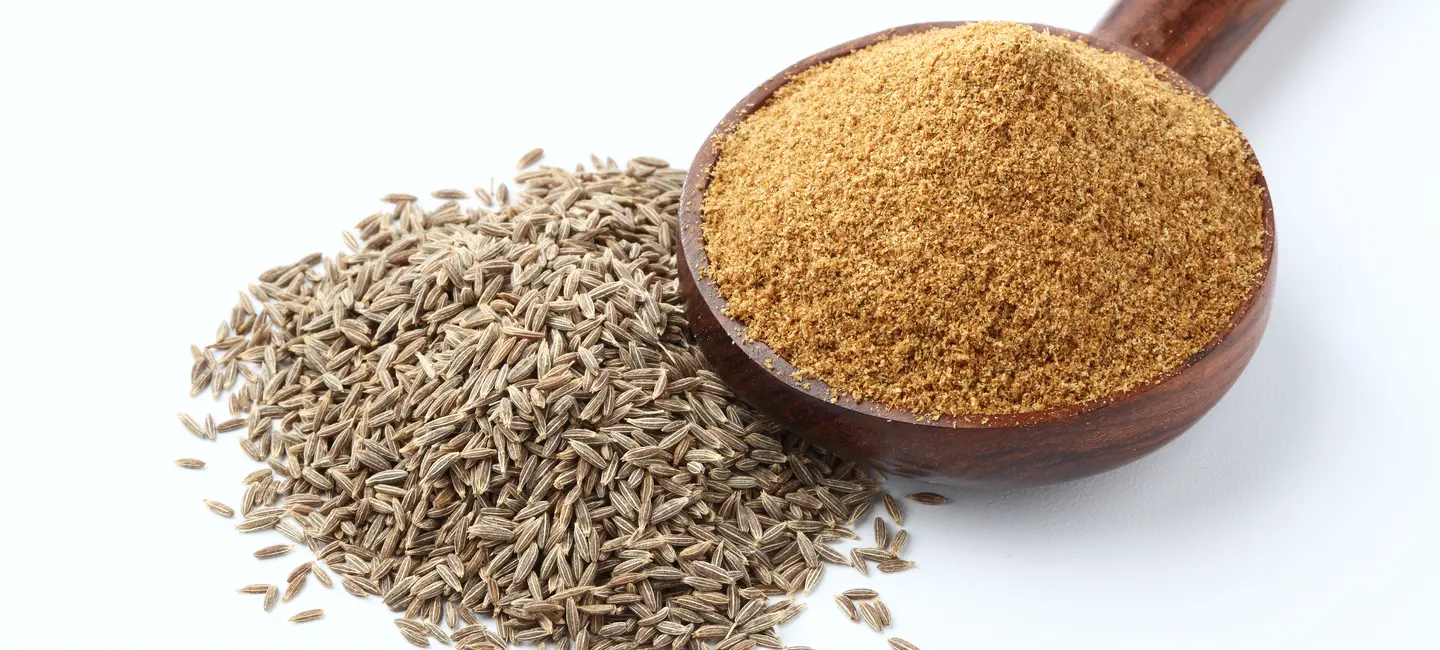
Cumin (Cuminum cyminum) is a plant native to the Mediterranean and southern Asia. The seeds are used in traditional medicine and also as a spice in food.
Cumin might have cholesterol-lowering and antibacterial effects, but it's not clear if these effects have an impact in the body.
People use cumin for abnormal levels of cholesterol or blood fats, obesity, diarrhea, and many other conditions, but there is no good scientific evidence to support these uses.
Don't confuse cumin with black seed, which is sometimes called black cumin. These are not the same.
Is It Effective?
There is interest in using cumin for a number of purposes, but there isn't enough reliable information to say whether it might be helpful.
Is it Safe?
When taken by mouth: Cumin is commonly consumed in foods. It is possibly safe to use cumin powder and cumin essential oil as medicine. Cumin might cause an upset stomach in some people. Also, some people can be allergic to cumin.
Special Precautions & Warnings:
Pregnancy and breast-feeding: Cumin is commonly consumed in foods. There isn't enough reliable information to know if cumin is safe to use as a medicine when pregnant or breast-feeding. Stay on the safe side and stick to food amounts.
Bleeding disorders. Cumin might slow blood clotting, which might make bleeding disorders worse.
Surgery: Cumin might lower blood sugar levels and slow blood clotting. It might interfere with blood sugar control and make bleeding worse during and after surgery. Stop using cumin at least 2 weeks before a scheduled surgery.
Medications for diabetes (Antidiabetes drugs)
Interaction Rating=Moderate Be cautious with this combination.
Cumin might lower blood sugar levels. Taking cumin along with diabetes medications might cause blood sugar to drop too low. Monitor your blood sugar closely.
Medications that slow blood clotting (Anticoagulant / Antiplatelet drugs)
Interaction Rating=Moderate Be cautious with this combination.
Cumin might slow blood clotting. Taking cumin along with medications that also slow blood clotting might increase the risk of bruising and bleeding.
Rifampin (Rifadin)
Interaction Rating=Moderate Be cautious with this combination.
Cumin might increase how much rifampin the body absorbs. Taking cumin along with rifampin might increase the effects and side effects of rifampin.
Herbs and supplements that might lower blood sugar: Cumin might lower blood sugar. Taking it with other supplements with similar effects might lower blood sugar too much. Examples of supplements with this effect include aloe, bitter melon, cassia cinnamon, chromium, and prickly pear cactus.
Herbs and supplements that might slow blood clotting: Cumin might slow blood clotting and increase the risk of bleeding. Taking it with other supplements with similar effects might increase the risk of bleeding in some people. Examples of supplements with this effect include garlic, ginger, ginkgo, nattokinase, and Panax ginseng.
There are no known interactions with foods.
Cumin seeds are commonly used as a spice in foods.
As medicine, cumin essential oil has most often been used by adults in doses of 25-75 mg by mouth daily for up to 6 months. Cumin powder has most often been used in doses of 1.5-3 grams by mouth daily for up to 6 months. Speak with a healthcare provider to find out what type of product and dose might be best for a specific condition.
Anis Âcre, Comino, Cumin de Malte, Cuminum cyminum, Cuminum odorum, Cummin, Green Cumin, Jeeraka, Svetajiraka, Zira.
Information on this website is for informational use only and is not intended to replace professional medical advice, diagnosis, or treatment. While evidence-based, it is not guaranteed to be error-free and is not intended to meet any particular user’s needs or requirements or to cover all possible uses, safety concerns, interactions, outcomes, or adverse effects. Always check with your doctor or other medical professional before making healthcare decisions (including taking any medication) and do not delay or disregard seeking medical advice or treatment based on any information displayed on this website.
© TRC Healthcare 2024. All rights reserved. Use and/or distribution is permitted only pursuant to a valid license or other permission from TRC Healthcare.
